Yuri Matischen on his Sheffield Sharks career, BBL bailout, basketball’s growth potential and a life promoting sports events
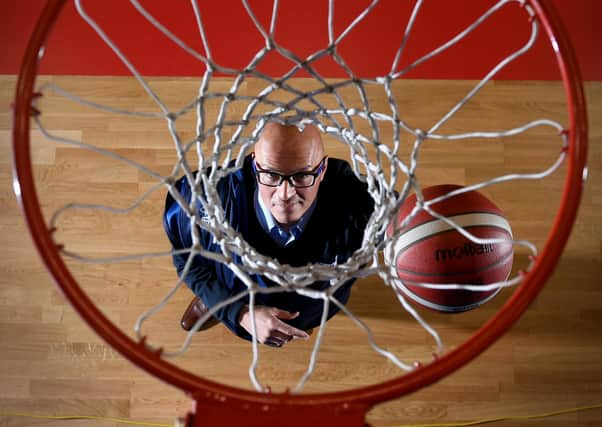

Yet as often as he can he will crowbar 20 minutes into his schedule to stand courtside and watch his beloved Sheffield Sharks in training.
It is enough time to remind him why he has made the advancement of sport his life’s work.
Advertisement
Hide AdAdvertisement
Hide Ad“That’s Adrian Anderson,” he says, pointing to the man in his 40s stood under the hoop, notes in hand, whistle in mouth.
“He came to us as a teenager, had had a difficult background, but basketball saved him, got him an education, and now he’s educational consultant on the underprivileged provision for schools, off the back of this sport.”
The pride in Matischen’s voice is obvious, even if it is laced with concern.
The ongoing coronavirus pandemic that threatens so many sports and clubs up and down the country – from grass roots all the way up to the professional level – has got administrators, volunteers, players and staff worried.
Advertisement
Hide AdAdvertisement
Hide Ad“You can see it all around the country,” he says. “Sports like ours that live on the edge all the time, you can take some punches but Covid has been a knockout blow, and we’re trying to make sure that we don’t get knocked out.”
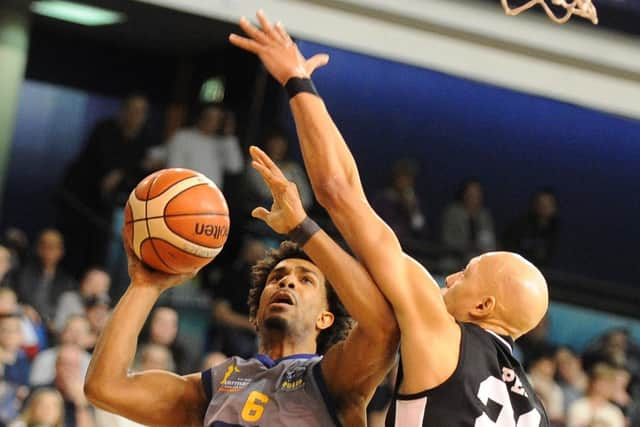

At the very top level, basketball has been shut down since March. The new BBL season was due to get underway last weekend but in the wake of the Government prohibiting fans watching sport for the foreseeable future, the competition was delayed.
The BBL, like many sports and associations, lobbied Government for help, based on what basketball and sport in general does for its communities.
And the BBL has been successful, revealing yesterday they will be receiving a Government grant understood to be in the early millions, which is enough money to get their league up and running at the end of this month, even if it will be behind closed doors.
Advertisement
Hide AdAdvertisement
Hide Ad“It’s vital for the sport to start a season this autumn,” said Matischen, with the season now due to commence on October 30.
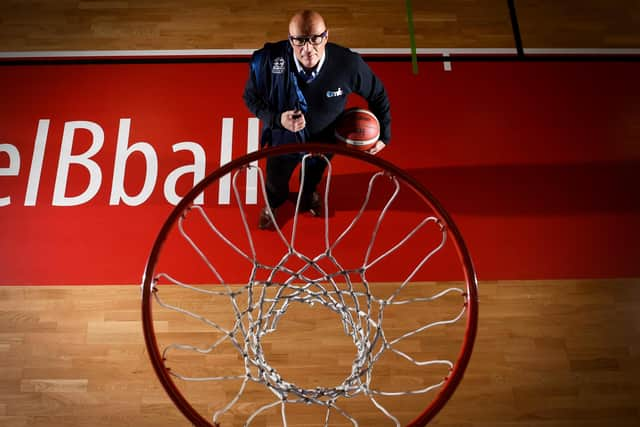

“We will represent fantastic value for money. And hopefully we can get fans back into arenas sometime in the new year.”
Matischen is not one to go cap in hand, but these are extraordinary circumstances.
He worked hard all his life to get where he has, with education the cornerstone of his upbringing in Bradford at the hands of a Ukranian father and Italian mother, neither of whom were blessed with the opportunities their children had.
Advertisement
Hide AdAdvertisement
Hide AdYoung Yuri played all manner of sports at Belle Vue Boys School and was inspired by a PE teacher there who had been to Loughborough University and steered his student along a similar path.
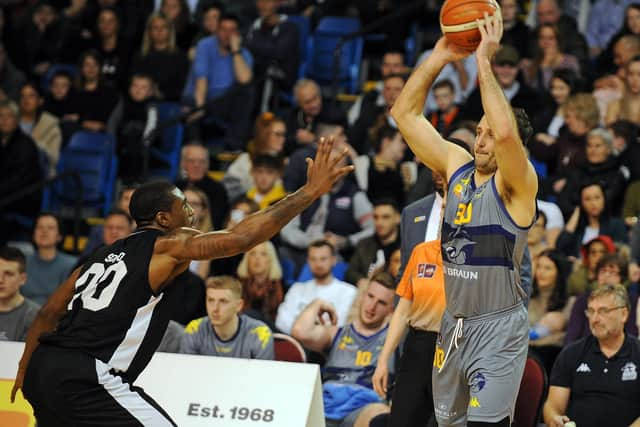

At Loughborough, Matischen played football, basketball and cricket, but quickly found he was more adept as an organiser, taking on the role of sport president for the athletics union, of which Sebastian Coe and Steve Backley were members.
His first job was as secretary of British University Sport which took him to World Student Games in Japan, Zagreb and Duisberg in the mid-to-late 1980s before the British Student Sports Federation selected Sheffield as its preferred bidder for the 1991 Games.
“I was persuaded to come to Sheffield to work on the Games as an assistant director of sport,” he recalls. “It was a fantastic learning experience for someone in their late 20s, like me.”
Advertisement
Hide AdAdvertisement
Hide AdWith that grounding, and under the guidance of Gerry Montgomery, who would later go on to become director of sport for the Commonwealth Games in Manchester in 2002, they set up MLS Contracts in the aftermath of the World Student Games.
“Initially, we were going to run large events in Sheffield,” he says of the company he now runs which stages multi-discipline events across the UK and abroad, including the British Transplant Games in Leeds in 2021.
“We brought the European Swimming Championships to Sheffield in 1993. If you think back now, because of the Games, it was the biggest single leisure and recreational build in any city in the UK; first arena, first 50m pool.”
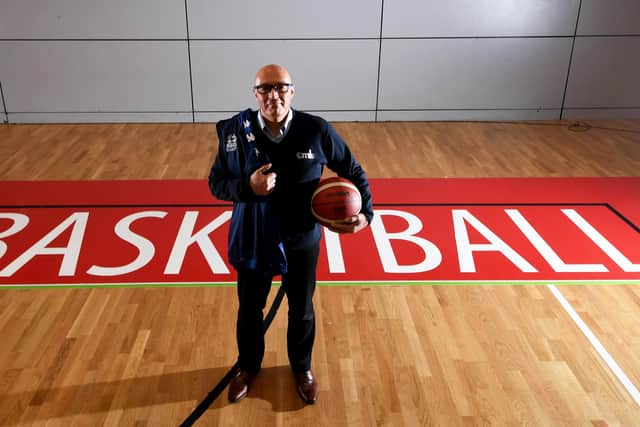

Matischen was well-placed to tap into that legacy, if initially he took a different road to the one advised.
Advertisement
Hide AdAdvertisement
Hide Ad“I remember at the Games, a guy from Fife who was working with us said you guys should set up an ice hockey team in Sheffield. I remember saying ‘who’s going to support an ice hockey team in Sheffield?’,” he laughs, a rueful look from the English Institute of Sport where we are sat, in the direction of the Sheffield Arena where the Steelers play.
Instead, Matischen used his love of basketball to launch a men’s team in Sheffield. He started the Forgers as an amateur team in Division Three, and after two promotions, coached them himself in Division One. Investment came on board and the Sheffield Sharks were born in 1994.
A quarter of a century on, Matischen is the owner/chairman and one of two club representatives on the league’s board. He may have two hats, but whichever one he wears his message is simple – a fair deal for his sport.
“Basketball is the second-most participated team sport in the UK behind football,” he points out. “So much more money goes towards cricket, rugby league, hockey, netball, so how come basketball – which still gets that partipation level – doesn’t?
Advertisement
Hide AdAdvertisement
Hide Ad“Government has now listened, they appreciate that we do a lot in the community. Our club is built upon that, we have a support centre at Ponds Forge, had it since 1999, and many clubs have the same structure; a community foundation running basketball clinics in schools, often in disadvantged areas.
“For many, that’s not sexy, it’s not going to attract blue-chip sponsors. Working with the demographic of C, D and E isn’t the wealth makers of A and B. But with the right level of investment this sport will grow.”
Using those participation numbers is the key driver, particularly for the Sharks, who for years have been trying to raise funds to build their own arena, similar to the venues rival clubs like Newcastle Eagles and Leicester Riders have built.
They want to build it on the Sheffield Olympic Legacy Park in Attercliffe, a site where Don Valley Stadium – the showpiece of the World Student Games – once stood, that is now a magnet for health and wellbeing.
Advertisement
Hide AdAdvertisement
Hide Ad“Our own venue would be transformational for basketball in this area,” he says.
“We’re not building the Sheffield Arena again, what we’re trying to do is build a community arena and that is hard because getting the funding packages together is very difficult.”
Once they finally cross that line, Matischen is confident it can be the catalyst for growth.
“If a kid wants to play basketball for an hour it’s £5, £6. For some families that’s a problem,” he says of the current situation. “If you want to join Junior Sharks, it’s £400, £500 a year which is a barrier to some.
Advertisement
Hide AdAdvertisement
Hide Ad“We’ve got to stop that. You should be able to turn up with your ball and, for example, between 7pm and 8pm play for free. In many parts of Europe, certainly eastern Europe, kids can get indoors and play for nothing. The facilities they build are very simple, uncomplicated.
“That’s what our hope is, that our venue when it is built is simple, uncomplicated, not expensive to run or maintain.
“From there, the more people that play drives the economy of basketball. The more they play the more they want to buy basketballs, strips, shoes. From that you get more sponsors, more corporate partners wanting to be associated with us. More participation leads to more business, more eyeballs.”
The media could do more, and if there is one thing that grates with Matischen it is that his sport is so often overlooked.
Advertisement
Hide AdAdvertisement
Hide Ad“We’ve had big names before like Loul Deng. And yet when the women’s netball team won gold at the Commonwealth Games, the following day our women’s team won silver, but there was only one story. Our media won’t follow those stories because basketball is not in their culture.
“I just want a fair crack for a sport that really touches the grass roots.
“It’s perseverance,” he laughs. “They don’t teach you that at university.”
Support The Yorkshire Post and become a subscriber today.
Your subscription will help us to continue to bring quality news to the people of Yorkshire. In return, you’ll see fewer ads on site, get free access to our app and receive exclusive members-only offers.
Advertisement
Hide AdAdvertisement
Hide AdSo, please - if you can - pay for our work. Just £5 per month is the starting point. If you think that which we are trying to achieve is worth more, you can pay us what you think we are worth. By doing so, you will be investing in something that is becoming increasingly rare. Independent journalism that cares less about right and left and more about right and wrong. Journalism you can trust.
Thank you
James Mitchinson